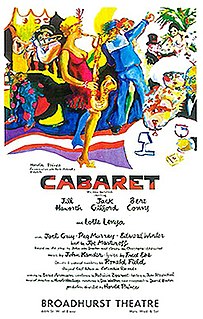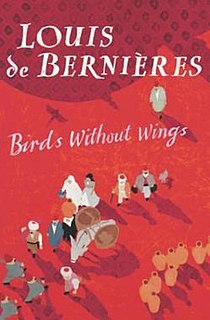
The Dardanelles, also known as the Strait of Gallipoli from the Gallipoli peninsula or from Classical Antiquity as the Hellespont, is a narrow, natural strait and internationally significant waterway in northwestern Turkey that forms part of the continental boundary between Asia and Europe and separates Asian Turkey from European Turkey. Together with the Bosphorus, the Dardanelles forms the Turkish Straits.

The Gallipoli peninsula is located in the southern part of East Thrace, the European part of Turkey, with the Aegean Sea to the west and the Dardanelles strait to the east.

Tell England: A Study in a Generation is a novel written by Ernest Raymond and published in February 1922 in the United Kingdom. Its themes are the First World War and the young men sent to fight in it.

The Gallipoli campaign was a military campaign in the First World War that took place on the Gallipoli peninsula, from 17 February 1915 to 9 January 1916. The Entente powers, Britain, France and Russia, sought to weaken the Ottoman Empire, one of the Central Powers, by taking control of the Turkish straits. This would expose the Ottoman capital at Constantinople to bombardment by Allied battleships and cut it off from the Asian part of the empire. With Turkey defeated, the Suez canal would be safe, and a year-round Allied supply route could be opened through the Black Sea to warm-water ports in Russia.

The Forever War (1974) is a military science fiction novel by American author Joe Haldeman, telling the contemplative story about human soldiers fighting an interstellar war against an alien civilization known as the Taurans. It won the Nebula Award in 1975 and the Hugo and Locus awards in 1976. Forever Free (1999) and Forever Peace (1997) are respectively, direct and thematic sequel novels. The novella A Separate War (1999) is another sequel of sorts, occurring simultaneously with the final portion of The Forever War. Informally, the novels comprise The Forever War series; the novel also inspired a comic book and a board game. The Forever War is the first title in the SF Masterworks series.

Cabaret is a 1966 musical with music by John Kander, lyrics by Fred Ebb, and book by Joe Masteroff. The musical was based on John Van Druten's 1951 play I Am a Camera which was adapted from Goodbye to Berlin (1939), a semi-autobiographical novel by Anglo-American writer Christopher Isherwood which drew upon his experiences in the poverty-stricken Weimar Republic and his intimate friendship with nineteen-year-old cabaret singer Jean Ross.

Gallipoli is a 1981 Australian war drama film directed by Peter Weir and produced by Patricia Lovell and Robert Stigwood, starring Mel Gibson and Mark Lee. The film revolves around several young men from Western Australia who enlist in the Australian Army during the First World War. They are sent to the peninsula of Gallipoli in the Ottoman Empire, where they take part in the Gallipoli Campaign. During the course of the film, the young men slowly lose their innocence about the purpose of war. The climax of the film occurs on the Anzac battlefield at Gallipoli, depicting the futile attack at the Battle of the Nek on 7 August 1915. It modifies events for dramatic purpose and contains a number of significant historical inaccuracies.

Sir Ian Standish Monteith Hamilton, was a British Army officer who, following an extensive British Imperial military career in the Victorian and Edwardian eras, commanded the Mediterranean Expeditionary Force in the Gallipoli Campaign of the First World War.

Rilla of Ingleside (1921) is the eighth of nine books in the Anne of Green Gables series by Lucy Maud Montgomery, but was the sixth "Anne" novel in publication order. This book draws the focus back onto a single character, Anne and Gilbert's youngest daughter Bertha Marilla "Rilla" Blythe. It has a more serious tone, as it takes place during World War I and the three Blythe boys—Jem, Walter, and Shirley—along with Rilla's sweetheart Ken Ford, playmates Jerry Meredith and Carl Meredith—end up fighting in Europe with the Canadian Expeditionary Force.

Lieutenant Colonel Charles Hotham Montagu "Richard" Doughty-Wylie, was a British Army officer and an English recipient of the Victoria Cross, the highest award for gallantry in the face of the enemy that can be awarded to members of the British and Commonwealth armed forces. Doughty-Wylie had been awarded the Order of the Medjidie from the very Ottoman Government he later fought against. He was generally known as Richard.

Hugo Vivian Hope Throssell, VC was an Australian soldier in World War I who was the first Western Australian and only Australian light horseman to receive the Victoria Cross (VC), the highest award for valour in battle that could be awarded to a member of the Australian armed forces at the time.

Alan McCrae Moorehead, was a war correspondent and author of popular histories, most notably two books on the nineteenth-century exploration of the Nile, The White Nile (1960) and The Blue Nile (1962). Australian-born, he lived in England, and Italy, from 1937.

Birds Without Wings is a novel by Louis de Bernières, written in 2004. Narrated by various characters, it tells the tragic love story of Philothei and Ibrahim. It also chronicles the rise of Mustafa Kemal Atatürk, the 'Father of the Turkish Nation'. The overarching theme of the story covers the impact of religious intolerance, over-zealous nationalism, and the war that often results. The characters are unwittingly caught up in historical tides outside of their control.
Writer J. K. Rowling cites several writers as influences in her creation of her bestselling Harry Potter series. Writers, journalists and critics have noted that the books also have a number of analogues; a wide range of literature, both classical and modern, which Rowling has not openly cited as influences.

The Crouching Beast is a 1935 British war thriller film directed by Victor Hanbury and starring Fritz Kortner, Wynne Gibson and Richard Bird. It was shot at Welwyn Studios with sets designed by the art director Duncan Sutherland. Based on the novel Clubfoot by Valentine Williams, the film was distributed by the Hollywood studio RKO Pictures in order to fulfil its British quota. However it was considerably more expensive than many of the quota quickies produced by American companies during the era.

Sultanhisar was a torpedo boat of the Ottoman Navy. She was built in 1907 by Schneider & Cie in Chalon-sur-Saône, France, and transferred the same year to Turkey. She is best known for her action during the Gallipoli Campaign of World War I as she sank Royal Australian Navy submarine HMAS AE2 in the Sea of Marmara and captured her crew.

The Treasure of San Teresa is a 1959 British-West German thriller film directed by Alvin Rakoff and starring Eddie Constantine, Dawn Addams and Marius Goring. It was based on a play by Jeffrey Dell. The film is also known by the alternative titles Hot Money Girl, Long Distance, and Rhapsody in Blei.
Mark Coulier is a British make-up artist and prosthetic makeup expert, who has worked in the Harry Potter film series, X-Men and The Mummy Returns.
The 9th Infantry Division was a formation of the Ottoman Turkish Army, during the Balkan Wars, and the First World War.

Those Folk of Bulboro is a 1918 novel by the British writer Edgar Wallace. It is likely it was written before the First World War, possibly even as early as 1908, and that Wallace produced the old manuscript to fulfil his contract with his publishers Ward Lock.

















